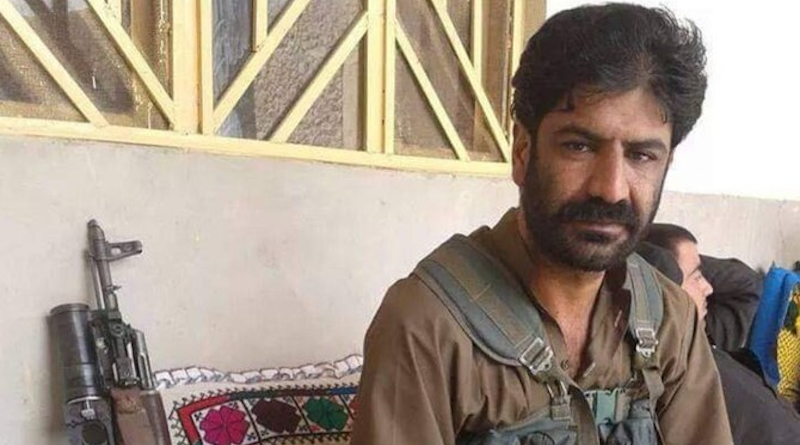Gulzar Imam Shambay Pleads For Clemency – OpEd
In a public address, Gulzar Imam Shambay, the prominent figure behind the outlawed Baloch National Army (BNA), humbly requested clemency and called upon his followers to surrender to the authorities. The Minister for Home and Tribal Affairs in Balochistan, Ziaullah Langu, introduced Shambay to the media, providing a concise overview of the intelligence operation that led to his capture. Shambay’s arrest was the culmination of a complex mission conducted across various locations. During his press appearance, he urged disillusioned Baloch individuals to abandon their armed uprising and join the broader national movement, working together to foster the growth and prosperity of Balochistan and the nation as a whole.
According to information from security sources, Shambay was born in 1978 in Paroom, District Panjgur. Prior to his involvement with a terrorist group in 2009, he worked as a contractor and served as a correspondent for a local newspaper. Initially, he held the position of deputy to Brahamdagh Bugti in the Baloch Republican Army (BRA) until 2018. Subsequently, with the establishment of the Baloch Raj Aajoi Sangar (BRAS), Shambay formed his own militant organization, the Baloch National Army (BNA). Recognized as an ideologue and operational leader, Shambay played a pivotal role in orchestrating militant activities in southern Balochistan. Moreover, he maintained connections with hostile intelligence agencies, advocating for what he referred to as the province’s independence. In December 2017, he even traveled to India using fraudulent documentation.
Shambay vehemently rejected the notion of being a mere pawn in the hands of hostile agencies, emphasizing his belief that the state, akin to a nurturing mother, would extend an opportunity for him and his fellow militants to reform and become responsible citizens, rather than persisting in their self-proclaimed fight for rights. Reflecting upon his fifteen years of involvement in militancy, he openly admitted his grave error in believing that armed struggle was a means to safeguard the Baloch people. Realizing that this approach only exacerbated the problems faced by the Balochistan populace, Shambay recognized that genuine progress and the realization of their aspirations could only be attained through constitutional and political avenues.
Shambay acknowledged the presence of malevolent forces exploiting disenchanted individuals as a pressure group, inflicting harm upon the Baloch people. He emphasized that these elements engaged in anti-state activities received support from hostile agencies, underscoring the strategic significance of Balochistan that rendered it a target for such interventions.
Having risen to prominence within BRAS due to his affiliations with hostile agencies, Shambay occupied the role of operational head before his eventual arrest. The operation to apprehend this high-profile militant leader spanned several months, culminating in a meticulously executed plan completed within a remarkably short duration of twelve hours. Intelligence agencies initially gathered leads regarding the hierarchy and leadership of militant groups through ongoing investigations and the deployment of informants within various organizations. Advanced digital technologies and software were employed to verify and cross-check the obtained information, thereby granting access to secure networks utilized by hostile actors. Trained intelligence operatives were strategically positioned in diverse locations to authenticate the digital data. Once Shambay’s identity was positively confirmed, undercover agents, posing as members of hostile intelligence agencies, gradually built rapport with him, enticing him through offers of financial and technical support.
Given the multifaceted geographic challenges involved, this intricate intelligence operation necessitated the creation of fictitious personas, the generation of supporting documentation, and the secure transfer of funds through untraceable means. These measures ultimately facilitated the establishment of contact and the strengthening of ties with Shambay. The sources further emphasized that Shambay’s arrest signifies the state’s and intelligence agencies’ awareness of the challenges posed by the militant landscape and their ability to effectively respond to them, with the ISI playing a crucial role.
Furthermore, it should be noted that the government and security forces have faced criticism for their perceived neglect of the Baloch people, while in reality, their efforts have been focused on countering these terrorist forces. Policy analysts have recommended a conciliatory approach to address the issue in Balochistan. Shambay’s apology and decision to lay down arms demonstrate that the state is capable of displaying compassion, akin to a forgiving mother, granting him an opportunity to reclaim responsibility. This highlights that it is the terrorist forces, not the government, that are impeding the interests of the Baloch people, as they are manipulated by foreign proxies. The path to Balochistan’s future lies in peaceful reconciliation, and the state is extending its support for the betterment of the Baloch people. It is now time for the Baloch community to rally behind the state, urging these militant groups to relinquish their arms and act responsibly for the development of Balochistan.

